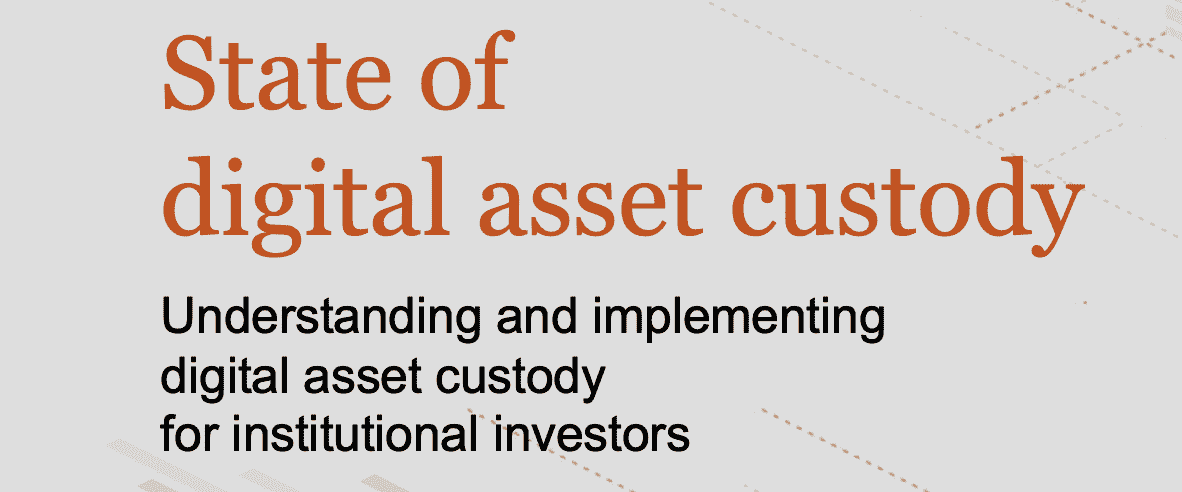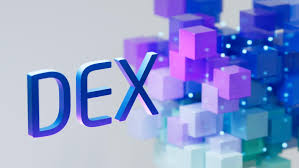Who is paving the way for big institutions? Scan the ecological landscape of the asset escrow industry
The traditional large institutions are looking forward to waiting for the opportunity to enter the world of encryption. The custody business, which is an important asset security foundation in the door, is the first to be busy and paving the way for it.
Recently, The Block reported that Coinbase is planning to acquire Xapo for $50 million, the latter being a cryptocurrency provider. It is reported that the company's core product is a bitcoin cold storage, and its assets under custody may reach $5 billion.
Coinbase is waiting for the "hosting prey" in the market, and on the other side is strengthening its own hosting business. Its CEO Brian Armstrong disclosed the results of the Coinbase custody business on the line two years ago at the Consensus conference two days before the news:
Encrypted asset custody, primarily for large institutional investors such as hedge funds, family offices, and market intermediaries. As an important node to ensure the security of large amounts of funds, open access to institutions, and promote the mainstreaming of the encryption market, it has gradually become a battleground for the military.
- Crazy BSV, and the logic behind it
- V God's proposed 99% fault-tolerant consensus: only 1% of honest nodes?
- Buy and buy, bitcoin "geek whale" accumulated 450,000 bitcoins in less than 9 months
Prerequisites for the industry to mature
For a long time, custody has been regarded as a prerequisite for the blockchain industry to mature, and it is an infrastructure for the industry to thrive. The main reason is to establish multi-party trust, open up funds access channels, and ensure asset security.
The financial flow of an institution often affects multiple entities such as investors, exchanges, trustees, and regulators. Can there be a sound security mechanism to prevent funds from being misappropriated or even lost, which is crucial for the establishment of trust? .
“There are some TokenFunds in the industry, and a single person may hold tens of millions of billions of trust funds. The formal financial market is obviously very small and may entrust large amounts of funds to an individual to manage. Using the hosting mechanism, Tokens are separated by hot and cold, and the keys are kept in order to reassure the parties," said Xu Bin, founder of Invault.
Frank, the founder of AlphaCoinFund, also expressed a similar view: "Encrypted asset compliance hosting is the most basic facility and prerequisite for large-scale entry into the cryptocurrency market."
Through a reasonable custody mechanism, the communication channel can be used to allow institutional funds to enter the market and run.
Compared to traditional assets, Token's custody is actually more complicated, and ordinary users often face many problems:
- Can't remember / remember the key, even the key is lost;
- If the user wants to make it convenient, he may choose to put the asset directly on the exchange, and whether it is the recent tens of millions of dollars of bitcoin stolen from the currency, or the theft of a large number of exchanges in the past, it proves that even for individuals This is not an absolutely safe management method for users, let alone for institutional customers;
- TokenFund / Hedge Fund may lose customer assets. According to Hacker Noon, in the first half of 2018 alone, approximately 466 hedge funds lost their customers' encrypted assets.
After the introduction of hosting, professional hosting services can help customers reduce the risks faced by assets. For example, BitGo claims to store the user's assets in cold storage and then seal them into the Swiss military-level vault.
In addition, the professional auditing and legal services that the custodian can provide can also help to reduce or circumvent compliance risks and thus ensure their security.
Industry ecology
At present, crypto asset hosting has initially formed an ecology, which can be basically divided into: exchange wallet, software wallet, hardware wallet, paper wallet, special wallet of a blockchain and hosting solution.
From a foreign perspective, the head office is Coinbase, Xapo, BitGo and Kingdom Trust. Coinbase is said to host $1 billion in crypto assets, while the latter three are estimated to host $5 billion, $5 billion, and $12 billion in assets, including digital assets and non-digital assets.
Among them, Kingdom Trust is the oldest encryption asset custodian. It was established in 2010 and currently holds a trust license, but has not obtained external financing yet. In January 2018, Bloomberg revealed that BitGo wanted to acquire the Kingdom Trust, but in May, BitGo said it would build its own hosting channel and terminate its acquisition of Kingdom Trust.
Xapo was established in 2012 and is not a licensed custodian. It has received two financings and received a total of 40 million US dollars. BitGo was established in 2013 and is a licensed custodian with a total of 84.5 million dollars in financing. The funds, it is worth mentioning that its B round of financing, led by Goldman Sachs Bank.
In contrast, domestic counterparts involved in the custody business relatively late, basically after the 2016 exhibition industry. It has the characteristics of late start, small scale and insufficient compliance. At present, relatively large institutions include Invault, Cobo, and Jade Pool.
Invault is one of the earliest organizations involved in digital asset custody in China and currently supports the hosting of Bitcoin, Ethereum and ERC20 series tokens. In 2018, it won an investment of tens of millions of yuan in angels led by Jingwei China. It is worth mentioning that the institution holds a trust license in Hong Kong and is one of the few licensed encryption asset custodians in the Asia Pacific region.
Cobo is a digital asset management and storage platform founded by Shenyu. Its CoboCustody business was launched in December 2018. It currently supports more than 30 public chains and more than 700 tokens. Its office location spans both China and the United States. Multiple cities in the country.
JadePool, also known as Yaochi, was also launched in 2018. Its special service is the financial cipher machine, which can be used to generate and save seeds, derive keys and save keys. At present, it has completed the angel round financing of more than 20 million yuan from distributed capital, Jianyuan Fund, and Prince Gong.
Domestically, there are also Keystore, Wetez and other institutions. However, according to public information and PANews, these institutions have not yet obtained licenses. Some institutions have admitted to PANews that in the field of digital asset custody, there is currently no license in China. Applications can only go overseas.
It is also worth mentioning that due to the current domestic regulatory trend of cryptocurrencies, the above institutions often choose to open a company in Hong Kong to support themselves as “protective umbrellas”.
Three "poses" for admission
At present, both the giants in the traditional institutions and the original company organizations that encrypt the world have already tried or cut into the track of the encrypted asset custody, and the whole has initially formed an ecology.
From the perspective of the entrance posture of all parties, there are mainly three types, self-built hosting channels, providing technical services and cooperative development.
-
Self-built hosting channel
Typical representatives of this category include exchanges such as Coin and Coinbase, as well as service providers in the managed verticals such as BitGo, Bakkt, Xapo, Cobo, and Invalut, as well as traditional giants such as Fidelity. Among them, Coinbase has both the custody of the exchange and the vertical custody business.
In addition, according to a report by Bloomberg in August last year, Goldman Sachs may also provide hosting services for institutional clients.
-
Become an "energy"
The typical representative of this type of organization is IBM. It does not provide hosting services, but provides technical support for the needs of the hosting business. It uses the FIPS140-2 Level 4 technology to develop a hardware security module (HSM) to support customers' self-sustaining keys in the cloud. Keep your own key).
The advantage of IBM's solution is that it uses purely electronic processes to manage assets. It can take 1-48 hours compared to cold wallets (hardware storage). The solution is faster and can reduce the loss of institutional investors' arbitrage opportunities.
Currently, the service has been adopted by the investment company Shuttle Farm of New York, which uses technology to launch a hosted solution for digital assets. It should be noted that Shuttle Holdings only provides solutions, but does not make specific storage.
-
Cooperative development
Typical representatives of this category include the cooperation of hardware wallet service provider Ledger with Nomura Securities, Global Advisors, and Bakkt's partnership with Bank of New York BNY Mellon.
The former announced the joint development of a project called Komainu in May 2018 to provide a secure and compliant path for institutional investors to enter cryptographic assets. It is reported that they also adopt IBM's HSM program.
However, in April of this year, the project's chairman Pascal Gauthier told CoinDesk that although the project is still in full swing, due to its higher difficulty, the release of related products may be postponed until 2020.
The latter is working together to develop a "geographically-distributed" key storage product, but as of now, no specific product has been disclosed.
Among the Wall Street giants, in addition to the New York Mellon Bank, according to Bloomberg News, there are also JP Morgan Chase and North Trust Corp. (Northen Trust Corp) to enter the field of encryption asset custody.
It is worth noting that many organizations have several postures to cut into the field.
As mentioned in the article, Coinbase, in addition to the self-built crypto asset escrow channel, will also acquire the heavy players in the Xapo crypto asset hosting;
Similarly, Bakkt, which provides its customers with its own hot and cold managed storage services, also acquired the Digital Assets Custody Company in April this year, which is also in the field of encrypted asset custody. Important player.
In addition, investment bank Goldman Sachs led $15 million to BitGo, which manages about $5 billion in assets and has so far received $84 million in financing.
Competitive differentiation
In the current crypto asset hosting market, everyone's core selling point is still around security, which is the primary stage of the development of the encryption market is also the only way. But in the long run, crypto asset hosting providers must be upgraded and upgraded.
Proofof Captial believes that in view of the current industry's exploration direction, future hosting providers may also need to have the functions of mortgage dividend, proxy voting (ie governance), fork and tax declaration to better meet the market demand.
For the customer, the core appeal of the mortgage dividend (one of the industry's highly-focused PoS methods) is value-added – institutional investors need not only the security of storage, but also the added value of assets. Obtaining relevant dividends by collateralizing the crypto assets into the network is a relatively trade-off.
Coinbase has made frequent efforts in this direction of mortgage this year. In early February, it announced that it has invested in staked.us. On March 29, it announced that its hosting system supports customers to save Tezos in a cold wallet for mortgage.
Wetez, HashQuark, JadePool, etc., which provide similar mortgage services in China, have an annualized return rate of about 5%-25%.
In addition, some service providers have unique services, such as Xu Bin told PANews that InVault can provide dual hosting of encrypted assets and legal currency because of the relevant licenses in Hong Kong.
From the perspective of InVault's planning, as its asset custody scale expands, the overall business will become more diversified, such as its aggregation of exchanges, C-side wallets, Token Fund, project parties, family funds, mine owners, etc. Many types of B-end customers may have opportunities for investment banking.
Increasingly clear compliance road
Hosting large amounts of funds is not only a reflection of investors' demand for security and other value-added services, but also the only way for service providers such as exchanges to comply with regulatory requirements.
For example, on November 1, 2018, the Hong Kong Securities and Futures Commission (SFC) introduced a conceptual regulatory framework for virtual asset trading platforms.
The framework clearly states that the exchange as an intermediary, its operators must comply with the provisions of the Hong Kong Securities and Futures Commission (Client Money Rules Cap.571), for the client's funds, the platform must establish one or more accounts, separately managed, And make sure they are securities.
The framework also indicates that it is expected that the platform operator will secure a certain amount of virtual assets (such as 98%) that are not frequently traded by customers in the form of cold storage to minimize risk.
Although there is no law to clarify and substantively stipulate that the trusteeship of encrypted assets needs to comply with the trust law, in the actual operation process, some trustees often apply for the consideration of advance layout or financial professional habits. Trust license for the region.
For example, when PANews recently interviewed Paxos co-founder Rich Teo at the Consensus conference, the latter said that the company's founding team had contacted financial institutions and governments in New York since 2011 and began to apply for supervision.
“Probably at the end of 13 or early 14th, Paxos began to communicate with NYDFS (New York Financial Services Authority), experienced a long process in the middle, and finally got a trust license in 2015.”
Xu Bin told PANews that the InVault license lasted for seven months from the application to the start, and the agency needed to pay a deposit to the Hong Kong regulatory authorities.
What is the impact of the recent FinCEN guidance program that has been hotly debated in the industry on crypto asset hosting? Chart, founder and CEO of BitMart, an exchange that has been approved by the US Financial Services Corporation (MSB), told PANews that digital asset custodians in the US market are currently applying for state-level trust companies (Trust Company). ) For the digital asset custody business, such as Coinbase, ltbit, Bakkt and other trading platforms.
“According to the US Fincen regulations, banks defined by CFR § 1010.100 (including Trust Company) do not need to apply for a Money Service Business license under Fincen. Currently, states that are more friendly to digital asset custody policies include New York State, North Dakota, Wyoming, etc.," he added.
Wen | Wang Zelong Editor | Tong Source | PANews
We will continue to update Blocking; if you have any questions or suggestions, please contact us!
Was this article helpful?
93 out of 132 found this helpful
Related articles
- BSV is 90%, and Aomoto is proved to be Nakamoto. The rumor is really an individual
- "Rebellious Bitcoin": After the US Congressman proposed a "ban", Bitcoin actually rose by 50% in response
- Market analysis: the market actually has to rely on false news to rise
- crazy! BSV nearly doubled in the past 16 hours, up 300% in 10 days
- In-depth report on "New Yorker": Ethereum Enemies (middle)
- Market Analysis: BSV has doubled, and the bull market has not decreased.
- Take a leek to make a living? Explain the Ripple XRP operation






